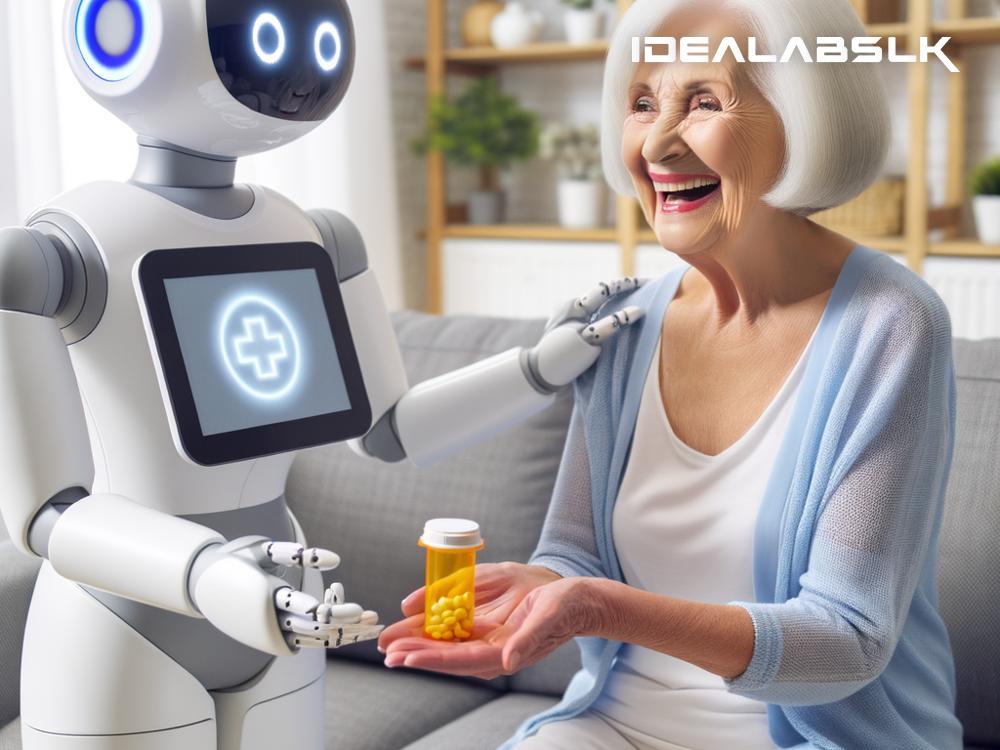How Healthcare Robots Are Transforming Elderly and Disabled Care
In today's rapidly advancing world, healthcare robots are becoming more than just figments of our wildest science fiction imaginations. They're evolving into essential companions in the healthcare sector, especially for the elderly and disabled individuals. These smart machines are revolutionizing the way care is provided, offering assistance with daily tasks, enhancing patient safety, and even providing companionship. Let's delve into how these extraordinary robots are making a difference in the lives of those who need them the most.
Personal Care Assistance
One of the primary roles healthcare robots are stepping into is assisting with personal care tasks. For many elderly or disabled individuals, routine activities like bathing, getting dressed, or even moving around the house can be challenging. Robots equipped with sensors and artificial intelligence are now able to help with these tasks. They can gently help lift individuals from a bed to a wheelchair, remind them to take their medications, and even assist with feeding for those who struggle with mobility in their arms.
Health Monitoring and Emergency Alerts
Staying on top of health metrics is crucial for the elderly and people with disabilities. Healthcare robots are being equipped with technology to monitor vital signs such as heart rate, blood pressure, and temperature. This constant monitoring ensures any irregularities are caught early, preventing possible emergencies. Moreover, in case of a fall or other emergencies, these robots can alert family members or healthcare providers, ensuring swift action is taken.
Mobility Support
Mobility is a major concern for many individuals, and robots are stepping in to provide support in this area as well. Some robots are designed to act as smart walkers or wheelchairs, helping users navigate their environments safely. They can automatically detect obstacles, ensuring the user's path is clear and safe. Additionally, exoskeleton robots are being developed to support individuals with weakened legs to stand and walk, offering a remarkable level of independence.
Social Interaction and Mental Health
Loneliness and social isolation are serious concerns for the elderly and people with disabilities, leading to deterioration in mental health. Healthcare robots can also serve as companions, engaging users in conversations, playing games, or reading to them. This interaction, although from a robot, can significantly improve the quality of life, offering emotional support and reducing feelings of loneliness.
Rehabilitation and Therapy
Recovery from surgeries or injuries often requires rigorous and consistent therapy, which can be both physically and emotionally taxing. Healthcare robots are being used to assist with physical therapy, providing support as individuals perform their exercises, ensuring they're done correctly. Some robots are even equipped with AI that can adjust therapy programs based on the patient's progress, offering a personalized rehabilitation experience.
Bridging the Gap in Healthcare Staffing
With the global aging population and increasing care needs, there's a growing strain on healthcare staffing. Robots are helping bridge this gap, taking over repetitive or routine tasks, thereby freeing up human caregivers to focus on more critical aspects of care that require personal touch and empathy. This not only enhances the quality of care but also reduces caregiver burnout.
Technology Meets Empathy
As healthcare robots become increasingly integrated into care systems, it's essential to remember that technology should complement, not replace, the human element of care. The goal is to use these innovations to enhance the quality of life for the elderly and disabled, offering them greater independence and dignity in their daily lives.
The future of healthcare robotics looks promising, with ongoing advancements making these robots more intuitive, empathetic, and effective at meeting the complex needs of their users. It's a testament to how technology, when used thoughtfully, can profoundly impact human lives for the better. The journey of healthcare robots from mere concepts to daily assistants in elderly and disabled care is just beginning, and the potential for positive impact is boundless.

